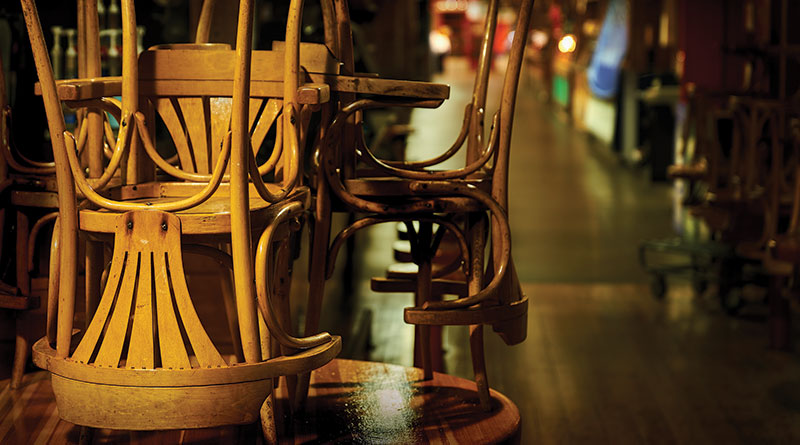Editor’s Viewpoint: The Hospitality Crisis – Government Must Act Now Before it’s Too Late

 By Peter Adams, Editor, CLH News.
By Peter Adams, Editor, CLH News.
As our lead story states, there is utter carnage in our sector – there is no other word for it, and it is not me or the wider hospitality sector saying it. There is a hard hitting article in this week’s Telegraph lambasting the government and its treatment of the hospitality sector.
The UK’s third largest employer has lost 1,100 venues since October, with hospitality venues closing at a devastating rate of two per day. This isn’t just statistics on a page; this is the destruction of livelihoods, communities, and the very fabric of British hospitality culture.
I, like many of you, have witnessed this carnage firsthand. Here in Bournemouth, established restaurants and pubs that have served our community for years now stand boarded up – empty monuments to failed policy.
This scene is replicated across every town and city in the country.
The numbers tell a stark story. According to the Office for National Statistics, hospitality has been hit hardest since October’s budget. The 84,000 job losses across our industry account for almost half – 45% – of all job losses nationwide, nearly one in two people who lost their job in recent months worked in hospitality.
Yet our tone-deaf government continues to cherry-pick data, referring to studies citing “increased business optimism” whilst ignoring the harsh reality staring them in the face.
This very week, The Institute of Directors’ Economic Confidence Index fell to -72 in July 2025 from -53 in June.
This exceeds the previous record low of -69 in April 2020 and marks the lowest reading since the Index began in July 2016. Business leader confidence in their own organisations also plummeted to -9 in July, from +3 in June – the second lowest reading on record.
The latest Business Confidence Monitor for Q2 2025 shows confidence falling further into negative territory, reflecting ongoing concerns about the crushing tax burden and slower expected domestic and export sales growth.
These aren’t isolated data points – they paint a picture of an economy in distress, with hospitality bearing the brunt.
I’m often reminded of the great American economist Thomas Sowell, who always asks three crucial questions when debating economics: “Compared to what? At what cost? What hard evidence do you have?”
I don’t think anyone can realistically point to anything positive in the current climate, and I very much doubt any cabinet minister could answer any of Thomas Sowell’s three questions with confidence.
The solution is staring the government in the face, yet they refuse to grasp it, and to be fair to them their predecessors failed too!
The only way forward, to my mind, and to many people inside and outside of hospitality – the only policy that will get the public back onside and our industry back on its feet – is an immediate VAT cut for hospitality.
I’ve long advocated reducing it to 12.5% for one year, then increasing it to 15% the following year. The benefits are crystal clear: stimulating demand, supporting job creation, improving business cash flow, and enhancing our tourism competitiveness on the global stage, but more importantly it would be a welcome concession by an under-fire government, one which the entire population would benefit not just operators, who wouldn’t cheer for cheaper food, drink and accommodation?
As for taxes? To quote the late, great Kerry Packer when he appeared before a government select committee in Australia: “As a government, I can tell you, you’re not spending it that well that we should be donating extra.” Our hospitality businesses aren’t asking for handouts – they’re asking for the breathing space to survive and thrive.
On a more positive note, The Bank of England has reduced the base rate to 4% following a closely contested vote that required an unprecedented second ballot. This offers potential respite to our beleaguered sectors, and for that we must be thankful for small mercies. Every fractional improvement in our operating environment matters when businesses are fighting for survival on such thin margins.
But let’s be clear: this interest rate cut, whilst welcome, is a sticking plaster on a gaping wound. What our industry needs is bold, decisive action on taxation that recognises hospitality’s vital role as an employer, a community anchor, and a driver of economic activity.
The government must act, and act now. Every day of delay means more closures, more job losses, and more communities losing the pubs, restaurants, and hotels that make them vibrant places to live and visit. The question isn’t whether they can afford to help – it’s whether they can afford not to.
I would encourage all our readers to follow us on X/Twitter @CLHNews and visit our website at www.catererlicensee.com to sign up for our twice weekly e-newsletter.
